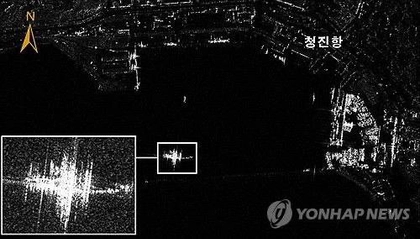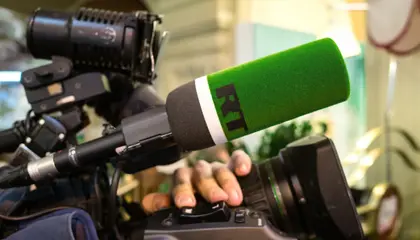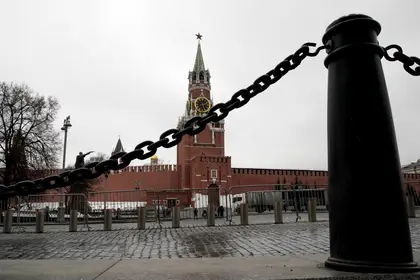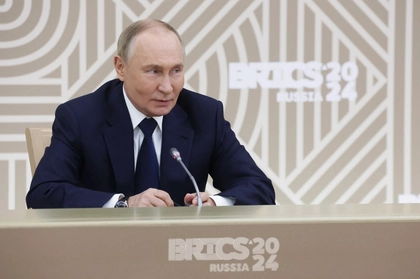Brussels hosted a presentation of the first detailed study on the malicious influence spread by the Russian propaganda outlet Russia Today.
The “RT in Europe and beyond” report, co-authored by an international team and published by Austria’s Centre for Democratic Integrity (CDI), was presented at the Brussels Press Club, according to an Ukrinform correspondent.
JOIN US ON TELEGRAM
Follow our coverage of the war on the @Kyivpost_official.
Full report is available here.
CDI chief Anton Shekhovtsov noted the importance of the study given how likely the Russian government is to apply the same approach and tactics to other information platforms elsewhere after RT was sanctioned and banned in many foreign jurisdictions.
The expert recalled that in response to Russian aggression, the EU banned RT and its various language versions, while Facebook and Twitter suspended the channel’s accounts and blocked external links to the relevant sites. In addition, YouTube blocked Russian a number of Russian state-owned media, including RT and Sputnik, worldwide, while Google removed them from search results across the European Union. Apple and Microsoft have also removed RT offers from their global stores.
During the presentation, the director of CDI pointed out that the English-language TV channel Russia Today, created in 2005, was originally planned as a tool of Russian “soft power”, but after the Russian war on Georgia in August 2008 and Moscow’s loss in the information battle (because at the international level, Russia failed to justify its “peace enforcement operation”), the Kremlin made a decision to rebrand and reconceptualize the platform. Since then, it has become an instrument of Russia’s political war against the West.

Up to 12,000 North Korean Troops Transferred to Russia, Satellite Images Show
Shekhovtsov pointed out the fact that RT Editor-in-Chief Margarita Simonyan spoke about her TV channel using military terms and comparing it to the “Ministry of Defense of Russia”, emphasizing the need to prepare for an information war in advance. This, Shekhovstov notes, is making absurd any assumptions that RT is just a TV channel, like any other.
Michael Gahler, a Member of the European Parliament from Germany, who attended the presentation, emphasized the importance of the study into the actions of a channel that distorts the truth.
The discussion related to disinformation began after Russia attacked and occupied Crimea, with the emergence of the so-called “little green men” on the peninsula, Gahler believes. He added that amid general unpreparedness by the West to respond to such a shock event, professional journalism was forced to stand up to what was more than just propaganda but pure lies.
The MEP pointed out that after Russia’s aggression against Ukraine in 2014, Europe has already become more aware of the Kremlin’s disinformation operations, methods and means that Russia employs to influence societies, decision-makers, and public opinion. He added that hitting RT with sanctions was a forced radical step, as it was not about freedom of speech, but about the distortion of the truth and the EU’s ability to see what is really happening.
In her turn, member of Ukraine’s permanent delegation to the PACE, Maria Mezentseva, emphasized at that distorted information can turn into a real weapon and not only affect conflicts, wars and developments in various societies, but also elections in these countries . According to the lawmaker, RT and Sputnik, whose broadcasting was banned in the EU this March, were engaged in exactly such a strategy. The deputy also emphasized that after the Russian war on Georgia in 2008 and the aggression toward Ukraine, unleashed in 2014, a number of mechanisms have been created by a number of civilized countries, including Ukraine, to effectively combat Russian propaganda.
The report “RT in Europe and beyond” is the result of the collective efforts of scholars, journalists, experts, and civil society leaders, who made the first detailed study of the Russian TV channel and its versions in English, French, German and Spanish.
It should be clarified that all sections of the report had been completed by February 24, so it does not reflect RT’s coverage of the full-scale Russian invasion of Ukraine.
As reported, on March 2, the European Union decided to ban broadcasting on its territory by the Russian disinformation resources Russia Today and Sputnik.
You can also highlight the text and press Ctrl + Enter






